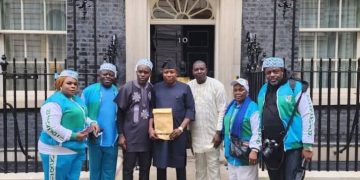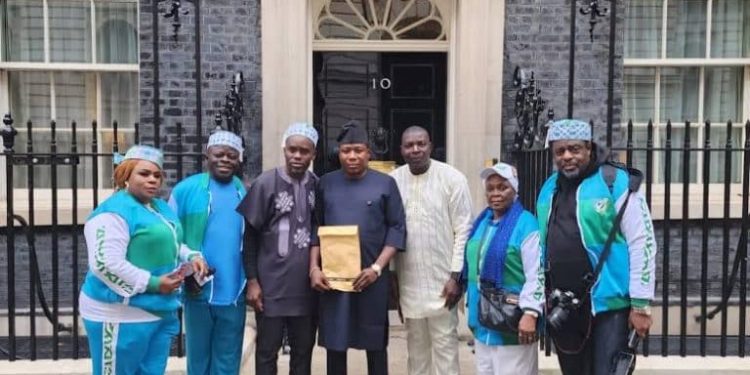The Federal Government has summoned the British High Commissioner through the Ministry of Foreign Affairs, following the recent visit of Yoruba Nation advocate Sunday Adeyemo, also known as Sunday Igboho, to 10 Downing Street, where he submitted a petition. The petition was on behalf of Prof. Adebanji Akintoye, the leader of the Yoruba Nation movement.
The petition seeks the UK Prime Minister’s intervention in the movement’s quest to establish a nation for the indigenous Yoruba people.
This development was disclosed in a statement by Amb. Eche Abu-Obe, the spokesperson for the Ministry of Foreign Affairs, on Tuesday, October 15.
During the meeting, the British High Commissioner acknowledged the concerns raised by the petition but clarified that media reports on the matter were misleading.
The High Commissioner confirmed that accepting petitions at 10 Downing Street is a routine process and does not imply endorsement by the UK government or the UK Parliamentary Petitions Committee.
He also noted that similar petitions have been previously rejected by both the UK government and the Parliamentary Petitions Committee, reaffirming the UK’s stance of non-interference in the internal matters of other nations.
The statement read: “Following media reports on the submission of a petition at 10 Downing Street by Mr. Sunday Adeniyi Adeyemo, also known as Sunday Igboho, the British High Commissioner in Abuja was invited to clarify the situation. The High Commissioner acknowledged the concerns raised and indicated that the reports were misleading.
“Additionally, the High Commissioner explained that the letter’s delivery was part of a routine process that allows for such submissions at No. 10, without implying endorsement by any UK government body or the UK Parliamentary Petitions Committee.
“The High Commissioner emphasized that the UK government generally does not involve itself in petitions concerning the internal affairs of other sovereign countries.”















